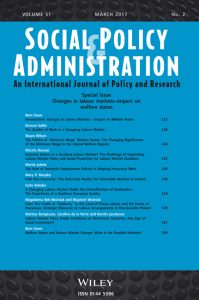Rethinking Childhood Gambling
 by theoryforthemasses
by theoryforthemasses
A recent article in the Archives of Pediatrics & Adolescent Medicine suggests that children who display impulsive behavior in kindergarten are more likely to engage in gambling at a young age. Researchers asked kindergarten teachers to rate their students’ inattentiveness, distractibility, and hyperactivity; six years later the students were asked to report the frequency with which they participated in activities such as buying lottery tickets and placing bets at sporting events. The researchers identified a positive relationship between the teachers’ assessments and the students’ gambling behaviors. What these researchers did not seem to consider, however, is the ways in which teachers’ perceptions can shape students’ identities and behaviors. Labeling theory, as proposed by sociologist Howard Becker, suggests that people with more power sometimes place labels on those with less power. These labels can have a profound impact on how the latter group see themselves. This can create a self-fulfilling prophecy whereby those labels are internalized, and the expected behaviors are exhibited. Perhaps we would do better to understand the social factors that affect students’ “impulsive” behaviors rather than assume they are related to their “natural” hyperactivity.






Great post! This is a very important issue and I like your take on it.
Keri